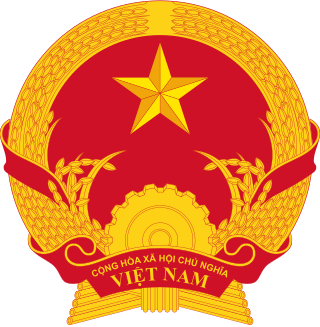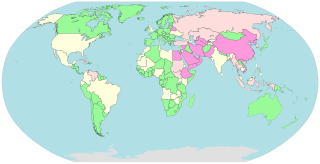Related Research Articles

Turkmenistan's human rights record has been heavily criticized by various countries and scholars worldwide. Standards in education and health declined markedly during the rule of President Saparmurat Niyazov.

IFEX, formerly International Freedom of Expression Exchange, is a global network of 124 independent non-governmental organisations that work at a local, national, regional, or international level to defend and promote freedom of expression as a human right.
Internet censorship in Tunisia significantly decreased in January 2011, following the ouster of President Zine El Abidine Ben Ali, as the new acting government removed filters on social networking sites such as YouTube.

PEN International is a worldwide association of writers, founded in London in 1921 to promote friendship and intellectual co-operation among writers everywhere. The association has autonomous International PEN centers in more than 100 countries.
Rohan Jayasekera is an English freelance journalist and advocate specialising in freedom of expression rights issues in conflict zones and repressive states. He was born in Holloway, North London, of mixed Sri Lankan-Scots-Irish parentage.
Canadian Journalists for Free Expression (CJFE) is a Canadian non-governmental organization supported by Canadian journalists and advocates of freedom of expression. The purpose of the organization is to defend the rights of journalists and contribute to the development of press freedom throughout the world. CJFE recognizes that these rights are not confined to journalists and strongly supports and defends the broader objective of freedom of expression in Canada and around the world.

Article 19 is an international human rights organisation that works to defend and promote freedom of expression and freedom of information worldwide. It was founded in 1987. The organisation takes its name from Article 19 of the Universal Declaration of Human Rights, which states:
Everyone has the right to freedom of opinion and expression; the right includes freedom to hold opinions without interference and to seek, receive and impart information and ideas through any media regardless of frontiers.
Censorship in Tunisia has been an issue since the country gained independence in 1956. Though considered relatively mild under President Habib Bourguiba (1957–1987), censorship and other forms of repression became common under his successor, President Zine El Abidine Ben Ali. Ben Ali was listed as one of the "10 Worst Enemies of the Press" by the Committee to Protect Journalists starting in 1998. Reporters Without Borders named Ben Ali as a leading "Predator of Press Freedom". However, the Tunisia Monitoring Group reports that the situation with respect to censorship has improved dramatically since the overthrow of Ben Ali in early 2011.

Human rights in Vietnam are among the poorest in the world, as considered by various domestic and international academics, dissidents and non-governmental organizations (NGOs) such as Amnesty International (AI), Human Rights Watch (HRW), and the United Nations High Commissioner for Human Rights (OHCHR).

International organizations have frequently alleged that Azerbaijan has violated human rights standards established in international law.

Human rights in Georgia are guaranteed by the country's constitution. There is an independent human rights Public Defender of Georgia elected by the parliament to ensure such rights are enforced. However, it has been alleged by Amnesty International, Human Rights Watch, the United States Department of State and the Georgian opposition that these rights are often breached.
Censorship in Cuba is the topic of accusations put forward by several foreign groups-organizations and political leaders, as well as Cuban dissidents. The accusations led the European Union to impose sanctions from 2003 to 2008 as well as statements of protest from groups, governments, and noted individuals.
The Arabic Network for Human Rights Information (ANHRI) was a non-governmental organization devoted to promoting freedom of expression across the Middle East and North Africa. It was founded in the year 2004. Based in Cairo, Egypt, the organization was founded by prominent Egyptian attorney and human rights activist Gamal Eid, who also served as the ANHRI's executive director. The ANHRI collected publications, campaigns, reports, and statements from almost 140 Arab human rights organizations across the region and republished them in a daily digest on its website. The group focused on supporting free expression, especially via the internet and mass media, and worked on behalf of persons regarded as having been detained on political grounds. It also advocated against censorship by Arab governments.

The Tibet Post is an online publication founded by a group of Tibetan journalists with the primary goal of promoting democracy through freedom of expression within Tibetan communities who are both within and outside of Tibet.
This list of Internet censorship and surveillance by country provides information on the types and levels of Internet censorship and surveillance that is occurring in countries around the world.
Ghazi Beji and Jabeur Mejri are Tunisian citizens sentenced on 28 March 2012 to 7.5 years' imprisonment for "transgressing morality, defamation and disrupting public order" after posting naked caricatures of Muhammad to Facebook. Mejri faced trial in court, while his friend Beji was convicted in absentia, having fled to Europe to escape prosecution. Mejri's appeal of his sentence was denied on 25 June 2012. Mejri's lawyer objected to his client being denied medical evaluation, describing him as "mentally unstable" and unemployed for the past six years.

The issue of human rights in Tunisia, is complex, contradictory, and, in some regards, confusing in the wake of the Tunisian revolution that began in January 2011 and overthrew the longstanding dictatorship of Zine El Abidine Ben Ali. While the immediate months after the revolution were characterized by significant improvements in the status of human rights, some of those advances have since been reversed. The situation remains in a state of flux, with different observers providing virtually irreconcilable accounts of the current status of human rights in that country.

Mazen Darwish is a Syrian lawyer and free speech advocate. He is the president of the Syrian Center for Media and Freedom of Expression. News organizations, including Reuters and the Associated Press, have described him as one of Syria's most prominent activists. He was imprisoned in Syria from 2012 until his release in August 2015.
Most Azerbaijanis receive their information from mainstream television, which is unswervingly pro-government and under strict government control. According to a 2012 report of the NGO "Institute for Reporters’ Freedom and Safety (IRFS)" Azerbaijani citizens are unable to access objective and reliable news on human rights issues relevant to Azerbaijan and the population is under-informed about matters of public interest.

This list of Internet censorship and surveillance in Africa provides information on the types and levels of Internet censorship and surveillance that is occurring in countries in Africa.
References
- ↑ "Tuniusia Monitoring Group", International Freedom of Expression Exchange web site
- ↑ "Tunisian partners share history in the making with IFEX-TMG". Archived from the original on 22 December 2014.
- ↑ "IFEX-TMG mission to Tunisia observes freedom of expression post 14 January", Tunisia Monitoring Group, International Freedom of Expression Exchange, 15 April 2011
- ↑ Behind the Façade: How a Politicised Judiciary & Administrative Sanctions Undermine Tunisian Human Rights, Tunisia Monitoring Group, International Freedom of Expression Exchange, 6 June 2010
- ↑ "Report of the Tunisia Monitoring Group on the eve of WSIS Tunis 2005". 2005. Archived from the original on 28 December 2007. Retrieved 18 December 2007.
- ↑ "About IFEX-TMG". IFEX. Retrieved 28 June 2023.